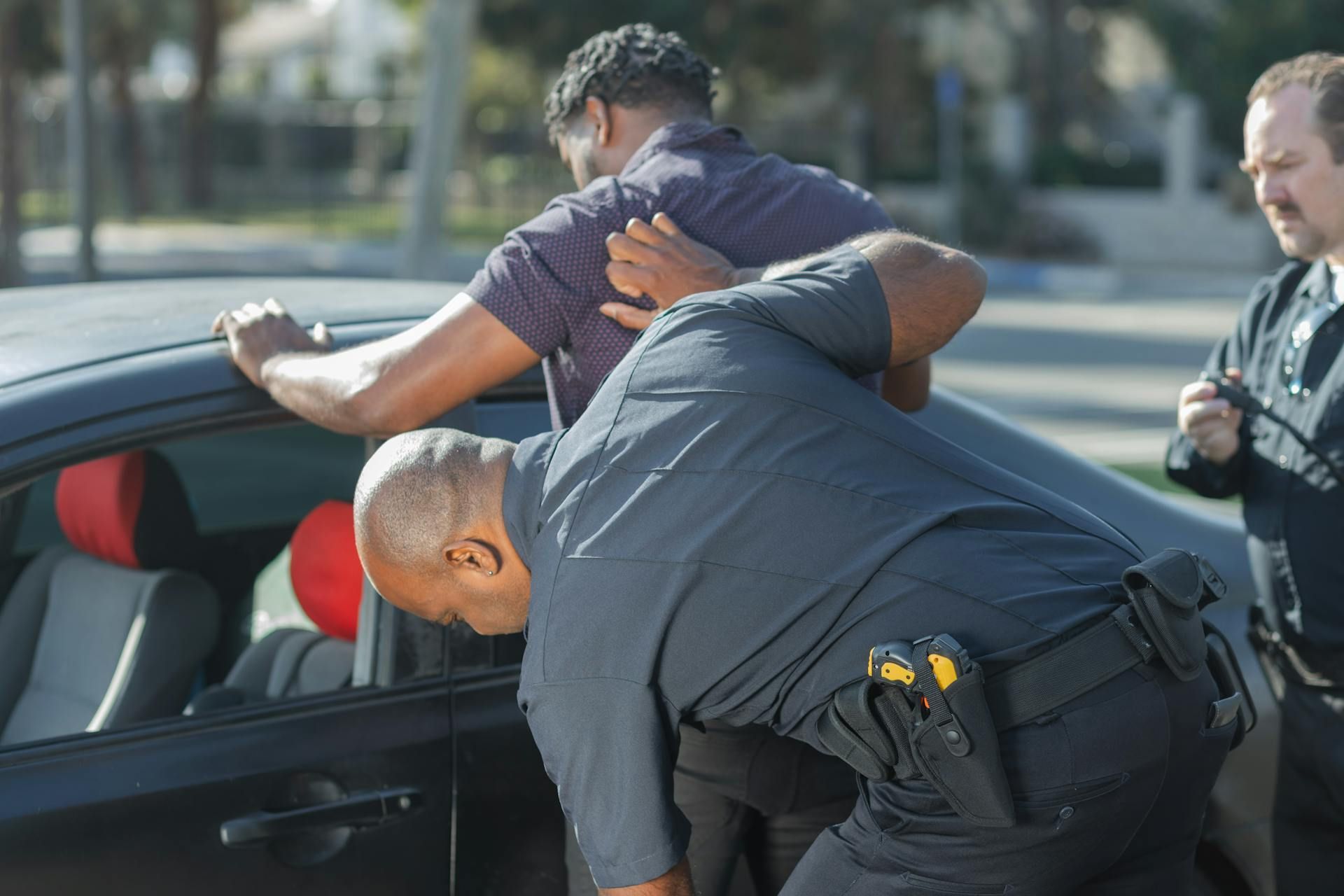What Happens if Someone Files a Restraining Order Against You?
What Is a Restraining Order
A restraining order is a legal document that is issued by a court to protect someone from another person's harmful behavior. It is commonly used in cases of domestic violence, stalking, harassment, or any situation where someone feels threatened or unsafe.
There are different types of restraining orders, but they generally require the person named in the order to stay a certain distance away from the person who requested it. Violating a restraining order can result in legal consequences, such as fines or even jail time.
Restraining orders are meant to provide a sense of security and peace of mind for the individual seeking protection. They can help prevent further harm and give the victim a legal recourse if the perpetrator continues to harass or harm them.

Understanding the Requirements for Obtaining a Restraining Order
Understanding these requirements is crucial to successfully obtaining a restraining order and ensuring one's safety.
The first step in obtaining a restraining order is to determine if you meet the eligibility requirements set forth by the state in which you reside. Eligibility requirements may vary by state, but generally, you must have a specific type of relationship with the person you are seeking protection against, such as a spouse, partner, family member, or someone you are living with. In some cases, individuals who have been stalked or harassed by someone they have no relationship with may also be eligible for a restraining order.
Once you have determined your eligibility for a restraining order, you must gather evidence to support your request. This may include documentation of threatening messages, photos of injuries sustained from abuse, witness statements, or police reports. The more evidence you have to support your request, the stronger your case will be.
When applying for a restraining order, you will need to fill out the necessary paperwork and file it with the appropriate court. You may be required to appear before a judge to present your case and explain why you are seeking a restraining order. It is important to be honest and thorough in your testimony, as the judge will use this information to determine whether or not to grant the restraining order.
If the judge determines that you have met the requirements for a restraining order, they will issue a temporary restraining order that will provide you with immediate protection. A hearing will then be scheduled to determine if a permanent restraining order should be granted. At the hearing, both parties will have the opportunity to present evidence and testimony to support their case.
If the judge grants a permanent restraining order, it will outline the specific terms of the order, such as how far the restrained person must stay away from you, whether they are allowed to contact you in any way, and for how long the order will be in effect. Violating a restraining order is a serious offense and can result in criminal charges.
What Happens if Someone Files a Restraining Order Against You?
If someone files a restraining order against you, it can have serious legal implications and ramifications for your life. A restraining order, also known as a protective order, is a court order that prohibits someone from contacting or being near another individual. The purpose of a restraining order is to protect the safety and well-being of the person seeking the order.
If someone files a restraining order against you, you will be served with the order by law enforcement or a process server. It is important to take the order seriously and adhere to its terms, as violating a restraining order can result in criminal charges and potential jail time.
Once the restraining order is in place, you will be required to stay away from the individual who obtained the order. This may include staying a certain distance away from their home, workplace, or any other location specified in the order. You may also be prohibited from contacting the individual by phone, email, or other means of communication.
In some cases, a restraining order may also require you to surrender any firearms or weapons in your possession. Violating this aspect of the order can have serious consequences, as the possession of a firearm while under a restraining order is a federal offense.
If you believe that a restraining order has been filed against you unjustly or unfairly, you have the right to contest the order in court. A hearing will be scheduled where both parties will have the opportunity to present their side of the story. It is important to seek legal counsel if you are facing a restraining order, as an experienced attorney can help you navigate the legal process and advocate on your behalf.
What to Do?
If someone obtains a restraining order against you, the first thing you should do is carefully read the document to understand the specific terms and conditions that have been put in place. This may include staying a certain distance away from the individual who has taken out the order, refraining from any form of contact or communication with them, and possibly surrendering any weapons you may own.
It is crucial that you adhere to the terms of the restraining order to avoid any legal consequences. Violating a restraining order can result in serious penalties, including fines, jail time, and a permanent mark on your record. If you have any questions or concerns about the terms of the order, it is best to consult with a lawyer who can advise you on how to proceed.
In addition, it is important to take steps to protect yourself and ensure that you do not inadvertently violate the restraining order. This may include deleting the individual's contact information from your phone, avoiding places where you are likely to run into them, and refraining from discussing the situation on social media or with mutual friends.
If you believe that the restraining order was obtained unfairly or that the terms are unreasonable, you have the right to challenge it in court. A hearing will be scheduled where both parties will have the opportunity to present their case, and a judge will make a decision on whether to uphold or dismiss the order. It is important to gather any evidence or witness testimony that may support your side of the story.
Consult with Legal Counsel
At the Law Office of Michael J. Englert, we understand the seriousness of a restraining order and the impact it can have on your life. Whether you are facing a temporary or permanent restraining order, it is important to take action immediately and seek legal representation. Our team of dedicated attorneys has the knowledge and experience to effectively defend you against false allegations and protect your rights.
Don't face a restraining order alone. Contact the Law Office of Michael J. Englert today to schedule a consultation and learn more about how we can help you. With our team of skilled attorneys by your side, you can feel confident knowing that you have a strong advocate fighting for your rights. Don't wait - call us today and take the first step towards defending yourself against a restraining order.
QUICK LINKS
CONTACT INFORMATION
Phone:
Address:
209 W Lexington Ave
Independence, Missouri, 64050
United States
HOURS
- Monday
- -
- Tuesday
- -
- Wednesday
- -
- Thursday
- -
- Friday
- -
- Saturday
- Closed
- Sunday
- Closed
Copyright © 2023
Michael J Englert, Attorney at Law, All Rights Reserved.









